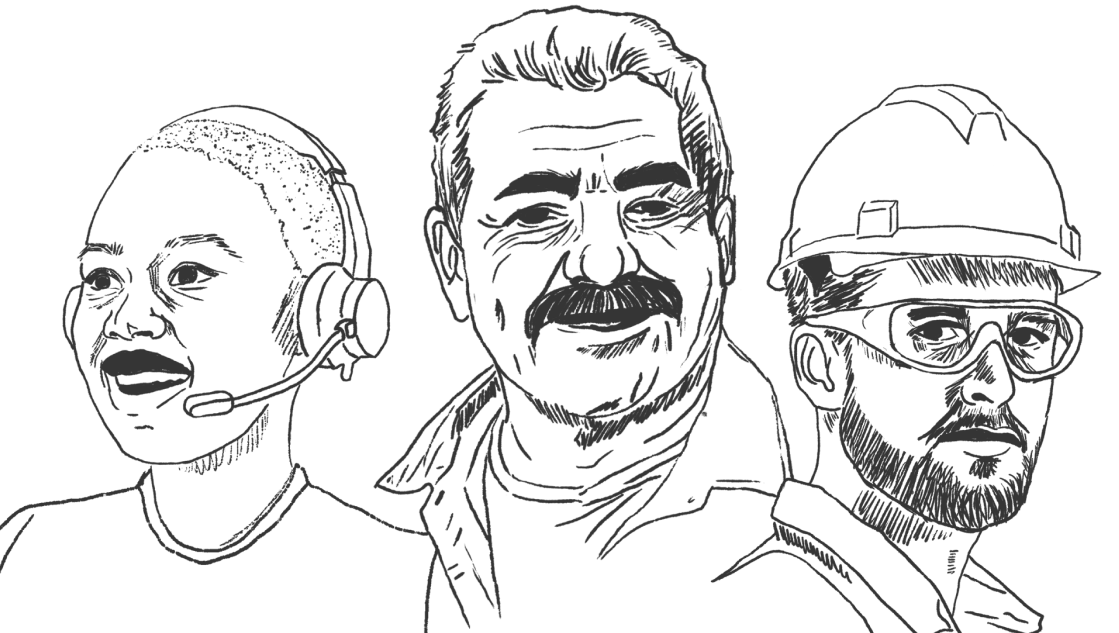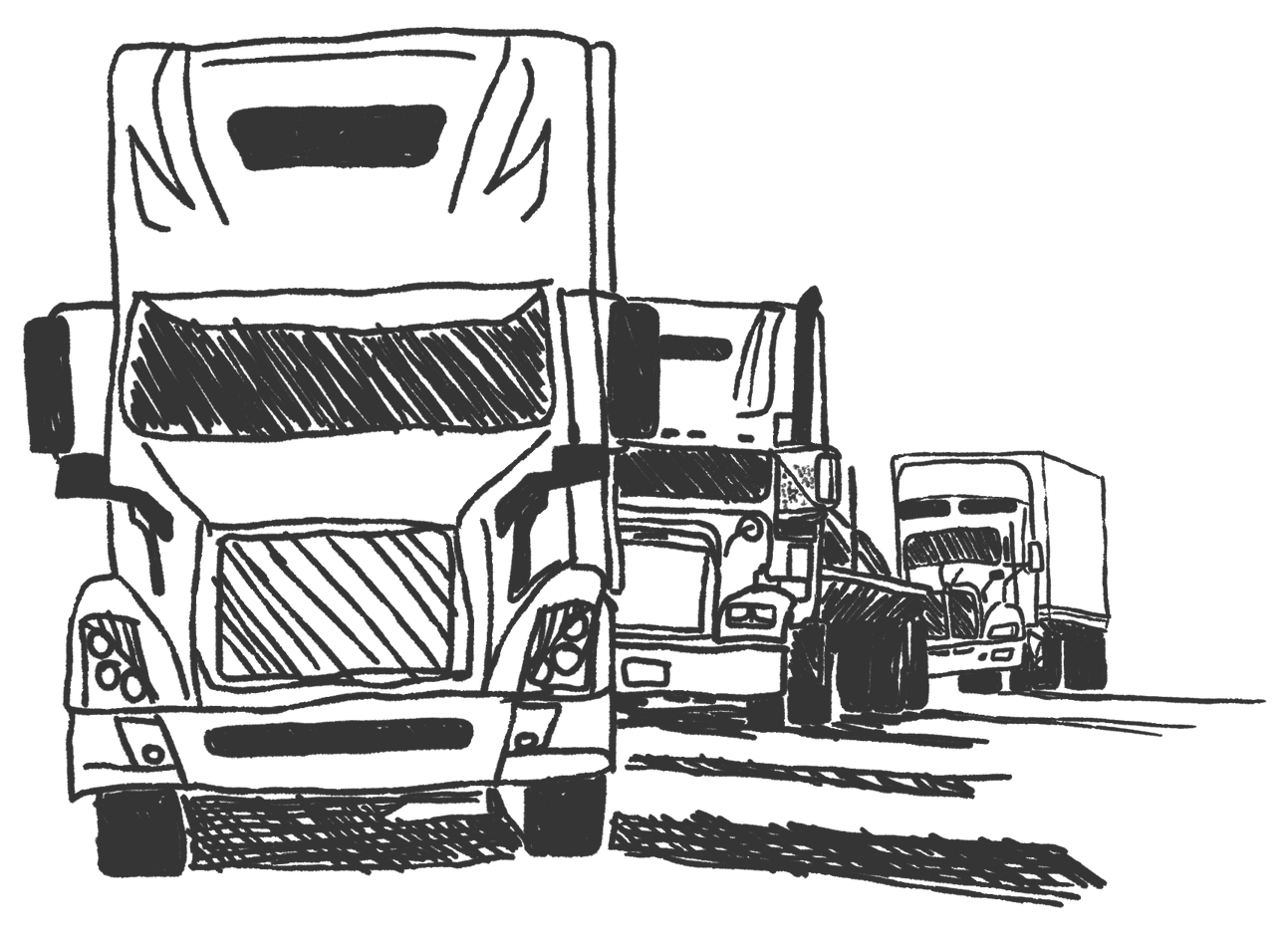Who’s at Fault in an 18-Wheeler Accident in Odessa?
When you’re hurt in an 18‑wheeler accident in Odessa, you may feel overwhelmed, confused, and unsure of what to do next. At Anderson Alexander (A2X), we understand. Our mission is to provide expert legal counsel, passionately advocate for your rights, and ultimately deliver the justice you deserve. If you’ve been injured by a trucking or 18‑wheeler crash in the Odessa area, you need trusted, relentless advocates on your side. At A2X, we genuinely care about your journey and your outcome. This isn’t just another case. It’s your life, and we understand what is at stake.
Understanding Fault in an 18‑Wheeler Accident
Determining who’s at fault in a big rig or tractor‑trailer wreck is often more complicated than it looks. Several parties might share responsibility. At A2X, we see firsthand how clients are taken advantage of after an accident because many don’t know their rights or realize how trucking companies, oilfield contractors, or insurance firms may shift blame, delay compensation, or pressure victims into low settlements. That’s why you need us by your side. We will dig deep and ensure that powerful companies don’t just get off easy.
Determining fault requires a detailed investigation, and at A2X, we look at all possible sources of negligence:
- The truck driver may be at fault due to factors such as fatigue, driving under the influence, distracted driving, speeding, or operating the truck without proper training. Driving violations are common and often overlooked until it's too late.
- The trucking company or employer can also be held responsible. These companies are required to maintain their vehicles, enforce hours-of-service rules to prevent driver fatigue, and hire qualified, well-trained drivers. If a company fails to maintain safe policies, overloads cargo, or negligently hires or supervises drivers, it could be held legally liable.
- Cargo loaders or shipping companies may play a role when freight is improperly loaded or secured. If cargo shifts during transit due to incorrect weight distribution or unsafe packaging, it can cause the truck to lose control.
- Oilfield contractors or third parties involved in the transportation chain may be liable, especially if deliveries to or from oilfield sites were poorly coordinated. We also consider whether road defects or negligent subcontractors contributed to the crash, a common occurrence in oilfield-related accidents.
- Maintenance providers or parts manufacturers can be at fault when equipment fails. Defective brakes, worn tires, faulty steering systems, or malfunctioning braking components may cause or worsen an accident. In these cases, product liability or service negligence becomes a central aspect of the claim.
Specific Factors in Odessa & Oilfield‑Heavy Areas
Odessa, situated in the Permian Basin, is heavily involved in oil production, including waste management, rig operations, pipelines, and constant heavy-duty transportation. Oilfield roads, equipment, rig traffic, and remote work sites introduce special hazards, including:
- Rural roads & remote oilfield access: Poor lighting, unpaved surfaces, deep gravel. These increase risk and complicate investigations.
- Oilfield traffic: Trucks carrying oil, chemicals, and drilling equipment often share access roads with big rigs. Overloading, poorly secured loads, and hazardous materials all raise the stakes.
- Emergency response delays: In remote areas, delayed medical care or delayed reporting can affect evidence collection.
- Lack of awareness of rights: Workers or residents may not be aware of the complete duties truckers and companies owe them under Texas law, or of the legal protections that apply.
Legal Criteria for Fault in Texas
In Texas, as in many states, fault in a trucking accident is determined through a legal concept known as negligence. At A2X, we evaluate negligence by establishing:
- Duty: Did the at‑fault party have a legal duty of care? For example, a truck driver must obey speed laws; a trucking company must inspect and maintain its trucks properly.
- Breach of Duty: Did they violate that duty? Driving while fatigued, skipping maintenance, and failing to secure the load are examples of breaches.
- Causation: Did that breach directly cause the accident and your injuries?
- Damages: What losses, injuries, medical bills, pain & suffering have resulted?
We also investigate whether statutory violations occurred (e.g., violations of the Federal Motor Carrier Safety Regulations) or gross negligence, which in some cases can lead to punitive damages.
How A2X Builds a Strong Case Quickly
Time matters. Evidence diminishes, memories fade, and important crash scenes can change. At A2X, we act swiftly to preserve proof and assemble your case. Here’s how we do it:
- We send investigators to the crash site to collect photos, skid marks, damage to both vehicles, and environmental conditions (including weather and road conditions).
- We interview witnesses, including any other drivers, oilfield workers, or bystanders.
- We request trucking logs, driver’s rest periods, maintenance records, GPS data, and load manifests.
- We consult specialized experts, including accident reconstruction specialists, medical experts, and, in oilfield incidents, industrial safety or equipment failure experts.
- We uncover wrongful conduct by asking questions like, was the load overweight? Were any parts defective? Was routine maintenance neglected? Did training standards meet legal minimums? If we don’t see the answer right away, we will begin investigating the situation until we understand exactly what happened.
Why You Need A2X Urgently After an 18‑Wheeler Accident
After an 18-wheeler accident, time is not on your side. Insurance companies and their adjusters typically respond quickly, often contacting claimants within hours or days of the incident. Without experienced legal backing, you may unknowingly say or do something that weakens your case. These companies are trained to minimize claims, shift blame, and settle for less than what victims truly deserve. Having A2X in your corner early means you’re protected from these tactics and won’t be taken advantage of during a vulnerable time.
Your legal rights can also be more complex than they appear. Employment status, oilfield contractor agreements, and liability waivers can all affect your ability to file claims or recover compensation. Many workers in the oilfield industry, for example, are unaware of the rights they have under Texas law, particularly when multiple contractors or third-party companies are involved. At A2X, we help you understand those rights clearly and use them to your advantage.
Equally important is securing evidence as early as possible. Crash scenes change fast, and if you wait too long, critical evidence that could prove fault may be lost forever. Our legal team moves quickly to document the scene, gather records, and preserve every detail necessary to build a strong case.
Finally, accurately calculating damages goes far beyond your initial medical bills. You may be facing lost income, reduced future earning potential, chronic pain, emotional trauma, or even permanent impairment. This is especially true for oilfield workers whose injuries often prevent them from returning to physically demanding jobs. At A2X, we take the time to understand the full scope of your losses, not just what’s on paper, and fight for compensation that reflects the actual impact on your life.
How Courts & Insurance Companies Assign Fault
Determining who is at fault in an 18-wheeler accident isn't just a matter of who says what; it’s a legal and evidence-based process. Courts and insurance companies rely on a wide range of factors to assess responsibility and liability. They look at things like:
- Driver’s logbooks/hours of service: Did the driver exceed allowable driving hours without proper rest? Fatigue is a frequent cause.
- Speed & driving behavior: Did the truck driver speed, brake suddenly, or swerve? Was there distracted driving?
- Truck maintenance history: Were brakes, tires, and steering systems properly inspected and maintained? Did previous safety violations exist?
- Load securing & weight: Was the load properly balanced? Was it overweight or improperly secured, causing it to shift and lead to loss of control?
- Road and environmental conditions: Did weather, darkness, road damage, or oilfield site access roads contribute?
- Employer policies and oversight: Does the trucking employer properly train, supervise, and maintain safety for drivers? Were there internal safety audits?
Ultimately, fault is determined by how convincingly the evidence demonstrates that someone’s negligence, or the negligence of multiple parties, led to the crash. We work to uncover all the facts and present them in a way that clearly demonstrates where the fault lies, ensuring you're not wrongfully blamed or undercompensated for someone else's mistake.
What Happens When Multiple Parties Share Fault
Texas follows a modified comparative negligence rule. If you are partly at fault, your recovery can be reduced proportionally, but only if your share of fault is 50% or less. If you are more than 50% at fault, you generally cannot recover damages. A2X carefully evaluates all involved parties and collects evidence that shifts or spreads liability to those legally responsible.
Why “Who’s at Fault in an 18‑Wheeler Accident in Odessa?” Matters
Because the answer determines who pays. Fault isn’t just about blame. It shapes your compensation. It affects how fast you get money for medical care, how strong your claim is, and what long‑term support you may need. You deserve a legal team that knows not only personal injury law but also has experience with oilfield accidents and 18‑wheeler crashes.
A2X: Your Trusted Advocates
At A2X, we see the human story behind every injury. When you contact us, we take the time to listen to your experience, your concerns, and the real impact the accident has had on your life. We explain your legal rights in clear, straightforward language, so you understand precisely where you stand under Texas law. From the moment you bring us on, we go to work fighting on your behalf, whether it’s against trucking companies, oilfield contractors, or aggressive insurance providers. With deep experience in catastrophic and personal injury cases nationwide, we bring both national strength and local insight, particularly in high-risk areas like Odessa. Unlike firms that rush to settle, our goal is to secure an outcome that reflects the full extent of your loss, your pain, and your future needs. When you’re up against powerful interests, you need advocates who care deeply and who never back down. That’s what A2X delivers.
If you or someone you love has been injured in an 18‑wheeler accident in Odessa, don’t wait. The sooner you act, the stronger your case can be. Reach out to A2X today. You need attorneys who will push back, thoroughly investigate, and ensure that justice isn’t delayed or denied.
We’re here to help you:
- Understand who’s at fault
- Hold the responsible parties accountable
- Fight for the maximum compensation you deserve.
Contact us now to schedule your consultation and begin your path toward justice. You’re not alone in this fight. Justice may feel distant now. However, with expert legal counsel, passionate advocacy, and a commitment to your rights, it can be a reality. You deserve justice. You deserve compensation. And with Anderson Alexander by your side, you won’t have to settle for less.
Request a Consultation
Other Practice Areas





